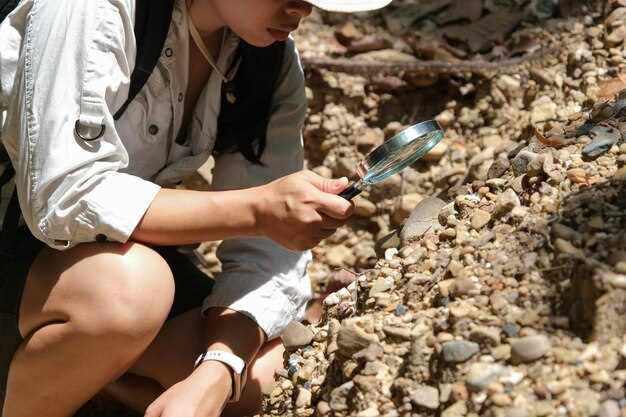
Treasure hunting can be an exhilarating and rewarding activity, but it also comes with its own set of challenges. One of the first steps to ensure a successful hunt is to equip yourself with the right gear. The importance of having the right tools goes beyond simply looking the part; they are essential for maximizing your chances of finding valuable items. In this article, we will explore common pitfalls that many treasure hunters face and how to avoid them to enhance your overall experience.
Choosing inadequate or inappropriate gear can lead to frustrating encounters in the field. Many beginners underestimate the significance of quality equipment, from metal detectors to digging tools. It’s crucial to research and invest in reliable gear that suits the terrain and type of treasure you are seeking. Failing to do so can result in wasted time and effort, turning what could be an exciting adventure into a discouraging one.
Another frequent mistake is neglecting to plan your search area thoroughly. Relying solely on random luck or hearsay can lead to disappointment. Knowing where to look, understanding local regulations, and ensuring that you have permission can make a significant difference in the outcome of your hunt. This article will discuss how to develop a well-rounded approach that includes proper planning and the right gear to help you avoid these common mistakes and increase your success in treasure hunting.
Choosing the Right Gear for Your Treasure Hunt

When planning a treasure hunt, selecting the appropriate gear is crucial for maximizing your chances of success. Your equipment not only affects the efficiency of your search but also your safety and comfort during the adventure.
A metal detector is often the centerpiece of treasure hunting gear. Choose a model that suits your experience level and the type of terrain you will be exploring. Advanced detectors offer features like discrimination settings and depth indicators, which can help you identify valuable targets while ignoring unwanted metals.
Additionally, having a reliable digging tool is essential. A trowel or a small shovel allows you to excavate quickly and carefully without damaging potential finds. Look for tools that are durable and lightweight, making them easier to handle in various soil conditions.
Don’t forget about protective gear. This includes sturdy boots to navigate rough terrain, gloves for hand protection, and a first aid kit to address any minor injuries. A backpack can also help carry your gear and supplies efficiently, ensuring you remain prepared throughout the hunt.
Consider incorporating a GPS device or smartphone app into your lineup. This technology assists in tracking your location and marking spots of interest, making it easier to revisit potential treasure locations later. Combining traditional maps with modern technology can enhance your chances of uncovering hidden treasures.
Lastly, depending on the environment, appropriate clothing can significantly impact your experience. Wear weather-appropriate attire that allows for freedom of movement and provides comfort throughout the day. Always check the forecast before heading out to ensure you’re adequately prepared for changing conditions.
Common Missteps When Researching Locations

When delving into treasure hunting, the research phase is critical for success. However, many hunters fall prey to common mistakes that can lead to wasted time and resources. Here are some missteps to avoid during your location research.
| Common Mistake | Description | Consequences |
|---|---|---|
| Ignoring Historical Context | Overlooking the significance of historical events in the area. | Missing potential treasure locations tied to historic events. |
| Relying Solely on Online Sources | Exclusively using internet-based information without verifying through other resources. | Inaccurate data may lead you to dead ends or false locations. |
| Neglecting Local Insights | Disregarding the knowledge of local historians or treasure hunters. | May overlook valuable clues and spots that are known in the local community. |
| Failing to Map Out Findings | Not documenting research findings systematically. | Difficulty in piecing together information leading to missed opportunities. |
| Forgetting to Check Legal Restrictions | Neglecting to research local laws regarding treasure hunting. | Potential legal issues or forfeiture of any discovered treasure. |
By addressing these missteps, treasure hunters can enhance their research process and increase the likelihood of successful finds. Thorough and informed preparation is key to a fruitful treasure hunting experience.
Neglecting to Follow Local Laws and Regulations
One of the most critical mistakes treasure hunters can make is failing to adhere to local laws and regulations. Each country, and often specific regions within countries, have distinct legal frameworks governing treasure hunting activities. Ignoring these laws can lead to serious legal consequences, including fines, confiscation of equipment, and even criminal charges.
Before embarking on a treasure hunting expedition, it is essential to research and understand the regulations that apply to the area you plan to explore. Many locations have specific rules about what can be searched, what can be kept, and what must be reported to authorities. For example, certain historical sites might be protected by law, prohibiting any excavation or searching.
Additionally, hunters may encounter laws regarding the ownership of found items. In some jurisdictions, treasure found on public land may belong to the government or the original owner, depending on local statutes. Not being aware of these legalities can lead to disputes and legal actions that could have easily been avoided.
Furthermore, obtaining necessary permits or licenses is often mandatory for treasure hunting. Skipping this step is not just unwise, it is a significant oversight that can tarnish the entire experience. Always check with local authorities or agencies to ensure you comply with all requirements, making the venture both enjoyable and lawful.
To summarize, neglecting to keep local laws and regulations in mind is a common mistake in treasure hunting that can have far-reaching consequences. Diligence in understanding the legal landscape can save time, effort, and resources, allowing you to focus on the thrill of the hunt without the burden of unforeseen legal challenges.
Improper Techniques for Metal Detecting
Metal detecting can be an exciting and rewarding hobby, but improper techniques can lead to frustration and missed treasures. Here are some common mistakes to avoid:
- Using Inadequate Gear: Selecting the wrong metal detector for your needs can significantly impact your success. Ensure that your gear is appropriate for the type of terrain and objects you plan to search for.
- Ignoring Ground Conditions: Failing to assess the ground conditions can lead to poor performance. Wet, mineralized, or heavily trash-laden soil can interfere with your detector’s ability to accurately identify targets.
- Improper Coil Technique: Swinging the detector coil too fast or at an incorrect angle can result in missed signals. Maintain a steady, consistent pace, keeping the coil parallel to the ground for optimal detection.
- Neglecting Sensitivity Settings: Not adjusting the sensitivity of your detector to match the environment can lead to false signals or failure to detect buried items. Regularly calibrate your device before and during your hunt.
- Rushing the Search: Taking shortcuts by not thoroughly searching a designated area can cause you to overlook valuable finds. Methodically cover each area, ensuring that you don’t miss any spots.
- Forgetting to Research: Failing to research the history of a location can prevent you from understanding where treasures are likely to be found. Look for old maps, historical records, and prior permissions before heading out.
- Ignoring Trash: Many beginners become discouraged by the amount of trash detected, assuming that valuable items won’t be nearby. Learn to differentiate between trash and treasure, as valuable artifacts often coexist with junk.
By avoiding these improper techniques and refining your metal detecting skills, you can vastly improve your chances of uncovering valuable treasures. Invest in appropriate gear and invest the time to hone your techniques for a more successful metal detecting experience.
Failing to Document Your Findings Accurately
Accurate documentation is crucial in treasure hunting, yet many adventurers overlook this essential practice. Failing to document findings can lead to several mistakes that may diminish the value of a discovery or hinder future searches. Below are key points to consider:
- Lack of Detail: Failing to record specific details such as the exact location, date, and environmental conditions can result in lost context for the findings.
- Inconsistent Notation: Using different formats or terminology can create confusion. Consistency is essential for clarity.
- Neglecting Visual Evidence: Skipping photographs or sketches of the site and artifacts can eliminate important visual references for future analysis.
- Forgetting to Date Entries: Documenting findings without dates can lead to uncertainty about when discoveries were made, complicating research and analysis.
To avoid these mistakes, it is advisable to implement a structured documentation system:
- Use a Journal: Keep a dedicated journal for all findings, including observations and thoughts related to each discovery.
- Spot Check Locations: Regularly revisit and document any significant locations to track changes or additional findings.
- Organize Data: Create organized files for photographs, maps, and documents related to specific finds, ensuring easy access to all relevant information.
- Review and Revise: Periodically review documentation practices and revise to ensure clarity and completeness.
By prioritizing accurate and thorough documentation, treasure hunters can avoid common mistakes that jeopardize their efforts and successes in the field.
Ignoring Safety Precautions While Hunting
One of the most critical mistakes that treasure hunters can make is overlooking safety precautions during their expeditions. Engaging in treasure hunting often takes place in remote locations, which may present various hazards such as rugged terrain, unstable grounds, or unpredictable weather conditions. Neglecting to prepare adequately can lead to accidents or injuries that could have been easily prevented.
Before embarking on a hunt, it’s essential to assess the area for potential risks. This includes understanding the environment, identifying any poisonous plants, wild animal habitats, or hazardous geographical features. Additionally, carrying the right tools and equipment, such as a first aid kit and a reliable GPS device, is crucial in ensuring your safety.
Another significant aspect to consider is informing someone about your planned hunt. This simple step can be lifesaving should anything go wrong. Family or friends should be made aware of your whereabouts, expected return time, and specific details about your intended location. In case of an emergency, having this information can expedite rescue efforts.
Moreover, treasure hunters should never ignore personal safety equipment. Wearing appropriate clothing, sturdy boots, and protective gear can mitigate risks associated with uneven or treacherous terrain. It’s also advisable to check the weather forecast and be prepared for sudden changes, bringing along essentials such as water, food, and shelter materials.
Ultimately, prioritizing safety during treasure hunting is not just about following precautions–it’s about ensuring that the quest for treasure doesn’t overshadow the importance of returning home safely. By taking these safety measures to heart, treasure hunters can avoid significant mistakes and enjoy their adventures with peace of mind.


